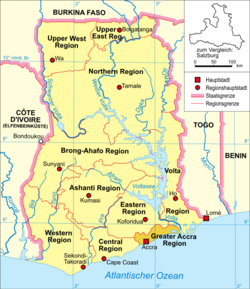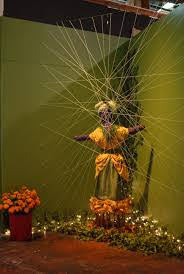- Her disciples learn herb knowledge from her, guaranteeing their bodily and spiritual well-being.
Aja, Herbs, And Ritual Offerings
When supernatural entities accept or reject ceremonial offerings, Osun and the Aje play a significant role.
When acknowledged, they strengthen and support herbal remedies; if not, they undermine their effectiveness and that of the ceremonial components.
Animals like ign (vultures) and aja (dogs), who eat the sacrificial sacrifices, are inspired by Aje. Consequently, they are revered by the babalawo and Eleerindınlogun.
Additionally, Chief Mrs. Elsoj made it clear that due to their close connection to and involvement with Osun, the Aje's leader, the Eleerindınlogun, herbs and roots are easily accessible to them as a result.
So, unlike diviners in other systems who must first pay particular devotion to the Aje in order for the elements to be effective, they are given the ability to employ ritual and herbal components at whim.
Before extracting herbs or roots for ritual preparation, they chant a number of praises to the Iyami and ask for their assistance.
The standing of Aje and Osun among them is agreed upon by every single one of my sources.
In the words of Ifa priest of Babalawo Oyegbad, this is summarized:
Aje, often referred to as Iyami, are strong as such that the cosmos has been entrusted to their protection by Olodumare.
They now have control and authority over its business thanks to him. The cosmos is firmly held together by them. They continue to keep the planet in order.
Osun is not only one of them; she is also their leader. In addition, Osun's function is essential in restoring harmony to any tense relationship.
Osun's standing among the spiritual beings explains why her influence over ritual procedures is crucial to the deity's plan for resolving disputes and crises.
The effectiveness of the ceremonial sacrifices suggested by diviners may be achieved by communication with all spiritual beings.
Therefore, it is said that Osun, the head of the Aje, has the mystic ability to restrain or remove the violent acts of other deities as well as human potential and prosperity.
Legends, Belief And Folklore Associated with Goddess Aja.
Aja is an Orisha in Yoruba mythology, patron of the forest, its animals, and herbal healers, whom she taught their craft.
- Aja may also refer to a "wild wind" in Yoruba.
- If someone gets taken away by aja and later returns, it is said that he would become a strong "jujuman" (or babalawo).
- The voyage is said to last anywhere from 7 to 3 months, and the individual who is carried is said to have gone to the country of the dead or heaven (Orun)."
- She is a botanist who knows all there is to know about plants and is a master of potions and healing herbs. She taught this art to the Yoruba people, who continue to perform it now.
- She is considered to be the spirit who taught all other healers how to do their jobs.
- She is a strong Orisha, and it is said that if she takes you away but lets you return after a few days, you will be bestowed with her magical abilities.
- A. B. Ellis said in Yoruba-Speaking Peoples of the Slave Coast of West Africa, published in 1894, that
"Aja, whose name seems to mean "wild vine," whisks strangers away into the woods and educates them about the therapeutic powers of plants, but she never hurts them.
Aja is humanoid in appearance, although she is short, standing between one and two feet tall.
Women utilize the aja vine to treat enflamed breasts."
Aja is one of the most elusive Earth Gods and Goddesses since she chooses to show herself to humanity rather than hurt or fear them.
Worshiping Aja is much rarer in the West, but it shouldn't matter since
Aja symbolizes a global value of environmental care and preservation, regardless of religion or spiritual calling.
Aja safeguards the woods, which are home to trees that provide oxygen and filter the air and water for all living creatures.
There would be more carbon dioxide in the atmosphere if trees were not safeguarding humans, and there would be no barrier to limit the speed of an already fast changing climate.
Among the Nigerian Goddesses and Gods, Orisha is immensely popular.
Goddess Aja is the spirit of the forest and the animals that live there, as well as
domestic healers.
Goddess Aja always teaches us understanding empathy for the natural world, and a well-balanced
empathy is the preventive strategy that prevents environmental degradation, destruction, and ecological anguish.
Thus Goddess Aja and Her true healing begins to unfold naturally and inevitably.
Frequently Asked Questions:
Who Is Goddess Aja?
Aja is an Orisha, a spirit that inhabits the forest and its creatures, as well as herbal healers. She would search her woodlands for medical plants and combine the herbs, roots, and other plant components to develop treatments for the ill.
Who is Africa's most powerful goddess?
In Yoruba religion,
Oshun is known as the river orisha, or goddess, and is linked with
water, cleanliness,
fertility,
love, and
sensuality. She is one of the most powerful orishas, yet she, like other gods, exhibits human characteristics including vanity, envy, and spite.
What is the name of the African healer goddess?
In Yoruba folklore and consequently in Santerian religious practice, Aja is a great healer. She is considered to be the spirit who taught all other healers how to do their jobs. She is a strong Orisha, and it is said that if she takes you away but lets you return after a few days, you will be bestowed with her magical abilities.
What is the name of the African nature goddess?
Asase Yaa is regarded as Mother Earth, the earth goddess of fertility, and the upholder of truth by the Akan people of West Africa.
Which dark goddess is the most powerful?
She's one of the most well-known and revered Orishas. Among the Yorùbá people, Oshun is a significant river god. Divinity,
femininity, fertility, beauty, and love are all goddesses to her. She has a link to fate and divination.
What are the seven African superpowers?
Initiation into the Seven African Powers is another frequent initiation (Elegua,
Obatala, Oggun, Chango,
Yemaya, Oshun, and Orunmilla). Babalu-Aye is often substituted for Orunmilla by Cuban devotees. The Seven African Powers have been merged into a single eleke.
What exactly are orisha?
orisha, often written orixa or orisa, is a Yoruba deity who lives in southern Nigeria. The Edo of southern Nigeria, the Ewe of Ghana, Benin, and Togo, and the Fon of Benin all worship them (who refer to them as voduns).
What is the maximum number of orishas you can have?
According to Yoruba culture, there are 400 + 1 orisha, which is considered a holy number. According to some reports, the number is "as many as you can conceive of plus one more - an infinite number." Depending to the oral tradition, there are 400, 700, or 1,440 orisha.
References And Further Reading:
- Morton-Williams, Peter. “The Yoruba Ogboni Cult in [Uppercase Letter O with Vertical Line below]y[Lowercase Letter o with Vertical Line Below].” Africa: Journal of the International African Institute 30, no. 4 (1960): 362–74. https://doi.org/10.2307/1157598.
- Dennett, R. E. “How the Yoruba Count (Continued).” Journal of the Royal African Society 17, no. 65 (1917): 60–71. http://www.jstor.org/stable/715685.
- Drewal, Henry John, John Pemberton, and Rowland Abiodun. “Yoruba: Nine Centuries of African Art and Thought.” African Arts 23, no. 1 (1989): 68–104. https://doi.org/10.2307/3336802.
- Yai, Ọlabiyi Babalọla. “In Praise of Metonymy: The Concepts of ‘Tradition’ and ‘Creativity’ in the Transmission of Yoruba Artistry over Time and Space.” Research in African Literatures 24, no. 4 (1993): 29–37. http://www.jstor.org/stable/3820251.
- Matory, J. Lorand. “Rival Empires: Islam and the Religions of Spirit Possession among the Ọ̀yọ́-Yorùbá.” American Ethnologist 21, no. 3 (1994): 495–515. http://www.jstor.org/stable/645918.
- Akínyemí, Akíntúndé. “Yorùbá Oral Literature: A Source of Indigenous Education for Children.” Journal of African Cultural Studies 16, no. 2 (2003): 161–79. http://www.jstor.org/stable/3559467.
























